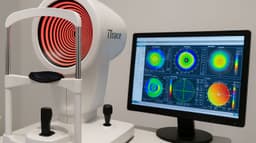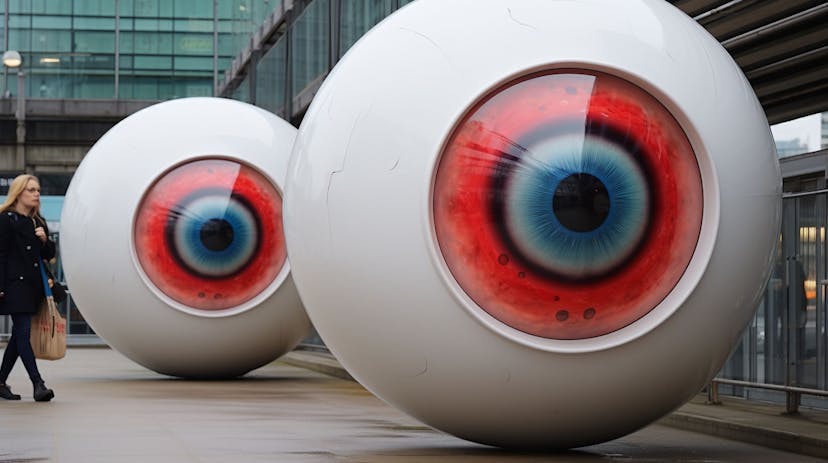
Trending Vision Correction for 2025: The Future of Clear Sight at My-iClinic
The future of vision correction is here — and it’s sharper, smarter, and more personalised than ever before. At My-iClinic in North London, we’re proud to offer the latest advancements in eye care technology, giving patients access to world-class treatment options that were once thought impossible. As we head through 2025, here are the leading innovations transforming the field of vision correction — and how they’re changing lives every day.
1. Wavefront & Topography-Guided LASIK
What it is:
This is LASIK 2.0 — a highly customised form of laser vision correction that uses advanced mapping of the eye’s unique imperfections. Wavefront-guided LASIK targets minute optical flaws (aberrations) in the visual system, while topography-guided LASIK focuses on the cornea’s surface irregularities.
Why it’s trending:
Patients are seeking not just 20/20 vision — but better than 20/20. These technologies deliver sharper outcomes, especially for people who struggle with glare, halos, or night vision issues post-surgery.
Case Study:
Sarah, a 29-year-old graphic designer, experienced difficulty with light sensitivity after traditional glasses. After undergoing topography-guided LASIK at My-iClinic, she not only achieved perfect vision but noticed clearer contrast and far better night vision — essential for her screen-heavy career.

2. SMILE (Small Incision Lenticule Extraction)
What it is:
SMILE is a minimally invasive laser eye surgery that reshapes the cornea through a tiny incision — no flap required. It removes a small, lens-shaped piece of tissue called a lenticule to correct vision.
Why it’s trending:
SMILE offers quick healing, less dry eye risk, and more biomechanical stability — making it ideal for younger patients and those with active lifestyles.
Case Study:
Tom, a 25-year-old amateur boxer, needed vision correction that wouldn’t sideline him with a long recovery. SMILE at My-iClinic gave him perfect sight without compromising corneal integrity — he was back training within days.

3. Implantable Collamer Lenses (ICLs)
What it is:
ICLs are micro-thin lenses implanted inside the eye, behind the iris, offering permanent vision correction for those who aren’t good candidates for LASIK or SMILE — particularly people with thin corneas or severe prescriptions.
Why it’s trending:
With rising cases of high myopia, ICLs are becoming the go-to option for precision correction that preserves the natural eye structure.
Case Study:
Maria, 42, fitness instructor had been told by multiple clinics that LASIK wasn’t suitable due to her thin corneas. My-iClinic fitted her with EVO ICLs, resulting in crystal-clear vision and no more dependence on -10 glasses or contacts.

4. Light Adjustable Lenses (LALs)
What it is:
A breakthrough in lens replacement surgery, LALs allow fine-tuning of your vision after the lens is implanted. Using UV light, surgeons can adjust the lens to suit your lifestyle and preferences.
Why it’s trending:
It removes the guesswork. Patients can trial their vision and lock in adjustments only once they’re satisfied — ideal for cataract patients and RLE candidates.
5. AI in Diagnostics and Personalised Treatment (Testing)
What it is:
AI is revolutionising diagnostics — from precise eye scans to early disease detection. At My-iClinic, AI technology supports customised treatment plans based on individual eye shape, lifestyle, and future risk factors.
Why it’s trending:
Patients expect precision, and AI makes it possible. It reduces human error and boosts treatment accuracy — especially in pre-operative planning and follow-up care.
Case Study:
James, 53, hairdresser was concerned about glaucoma risk and night vision. AI-assisted scanning at My-iClinic revealed subtle nerve fibre changes. This early detection helped guide his treatment path and preserve his long-term vision.

6. Gene and Stem Cell Therapies (Emerging)
What it is:
While still in early stages, gene therapy and stem cell techniques are showing promise in restoring vision lost to degenerative diseases like macular degeneration and inherited retinal disorders.
Why it’s trending:
These are the future frontiers of eye care — regenerative treatments that go beyond correction to actual repair of damaged tissue.
Case Study (Future Outlook):
Clinical trials worldwide are producing encouraging outcomes. As soon as these therapies become clinically approved, clinics like My-iClinic will be ready to evaluate their integration into advanced care plans.

Why London is Leading the Way in Vision Correction
London has become a global hub for innovation in eye care — and My-iClinic is at the forefront of this movement. With access to the latest surgical technologies, internationally trained consultants, and a culture of clinical excellence, the capital is setting new standards in personalised vision correction. Patients from across the UK — from Manchester to Bristol, Birmingham to Brighton — are travelling to North London to access My-iClinic’s world-class facilities and expertise. Whether it’s cutting-edge SMILE procedures, implantable lenses, or precision LASIK guided by AI, My-iClinic offers the future of eye care today — with the warmth and professionalism that patients trust.
Futureproof Your Vision at My-iClinic
At My-iClinic in North London, we don't just follow trends — we lead with them. From advanced LASIK techniques and minimally invasive SMILE to implantable lenses and light-adjustable technology, we offer the full spectrum of next-generation vision correction.
If you’re ready to explore the latest breakthroughs in personalised eye care, book your consultation today — and see the future, clearly.
Find out more by Speaking to our team









